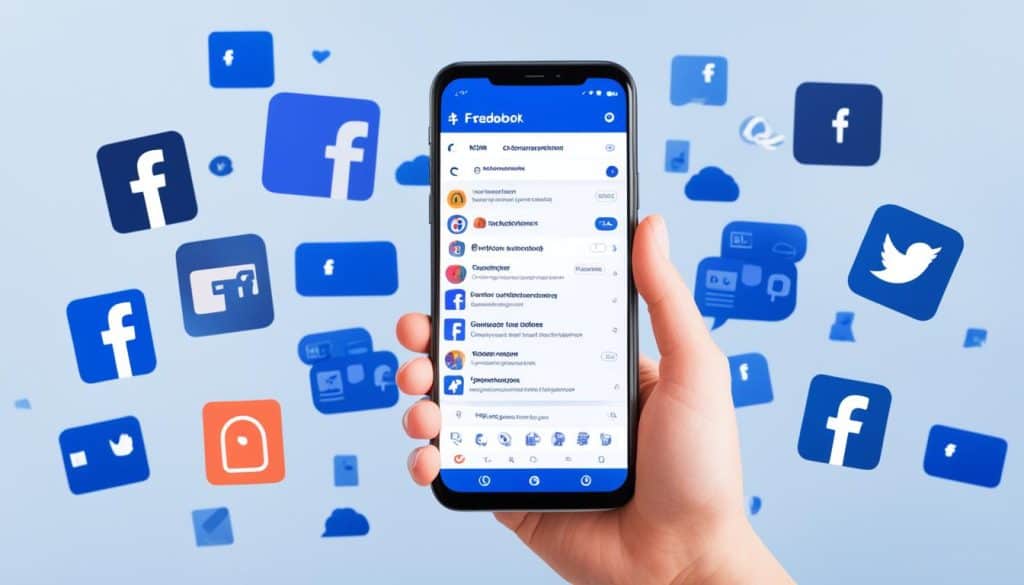Have you seen more friend requests on Facebook recently? You’re not the only one. Many users have noticed getting a lot of requests quickly. This sudden rise can be linked to how people are using the platform to connect more.
Figuring out why friend requests are going up is key. It helps you better control your Facebook experience. You can make decisions that match what you like and keep you safe online.
Key Takeaways
- Increased visibility due to the network’s expansive reach contributes to a surge in friend requests.
- Understanding the underlying reasons for friend requests can help users manage their connections more effectively.
- Adjusting privacy settings is a proactive way to control who can send you friend requests.
- Recognizing common patterns in Facebook interactions can provide insights into managing social connections.
- It’s important to remain vigilant about who you connect with to maintain online safety and privacy.
The Mechanics Behind Facebook’s Friend Suggestion Algorithm
We’re going to explore the inner workings of Facebook’s friend suggestion algorithm. This will help us understand how the ‘People You May Know’ feature and complex user behavioral patterns shape friendships online. User actions, content interactions, and smart algorithm calculations are all key. They make the Facebook network dynamic and constantly growing.
Understanding ‘People You May Know’ and Friend Suggestions
The ‘People You May Know’ section is vital for Facebook’s network growth. It looks at your mutual friends, where you work or study, and how you interact with others on the network. From this, Facebook creates a list of possible friends just for you. This makes the network grow in a natural and big way.
Behavioral Patterns That Trigger Requests: Acceptance and Passivity
The algorithm takes note of how quickly you say yes to connection requests. If you’re quick to make new friends, the algorithm will suggest more people you might like. But if you’re slow to respond, this affects the kind of people the algorithm suggests to you.
How Public Content Engagement Can Lead to More Connection Requests
When you like, comment, or share public posts, your profile looks more active. This can catch the eye of people who like what you share. It tells Facebook’s algorithm that you’re active and helps you meet more people. So, more people might want to be friends with you.
| Feature | Function | Impact on User Connection |
|---|---|---|
| People You May Know | Analyzes user data for suggestions | Increases potential connections |
| Engagement Metrics | Tracks likes, comments, shares | Heightens profile visibility |
| Behavioral Tracking | Monitors friend request acceptance | Adjusts future suggestions |
Why Am I Getting So Many Friend Requests on Facebook
Have you seen a lot of excessive friend requests on Facebook lately? You’re not the only one. Many people are surprised by the amount, ranging from old friends to new faces. Figuring out why this happens is key to handling the situation well.

There are a few reasons why you might get lots of excessive friend requests. Your activity on the platform could be a big factor, as well as having friends in common. Also, if you belong to the same groups or go to the same events, people might want to connect.
To better manage who can friend you, here are a few tips on reducing friend requests:
- Change your privacy settings to control who can add you as a friend, like setting it to ‘Friends of friends’.
- Watch what you post publicly, since it can make you more visible to others.
- Check your profile and activity regularly to see your online presence.
If you’re aiming for a simpler Facebook experience, these strategies can help. They’re good for managing friend requests on Facebook and keeping your online friends closer to those you know well.
Securing Your Facebook Profile Against Unwanted Friend Requests
Facebook is great for connecting with loved ones. Yet, sometimes, unwanted friend requests become a problem. To secure your Facebook profile, learn the right privacy settings. This way, you get fewer friend requests you don’t want. Change your settings so only ‘friends of friends’ can add you. This lets you meet new people while staying safe.
To stop unwanted friend requests, keep an eye out for strangers. Blocking them on Facebook is a quick solution. It stops them from seeing your stuff. Also, clean your friends list often. Get rid of people you don’t know. This keeps bad actors away.
But, keeping safe is more than just about friends. Watch what you post. Don’t share things that give out too much about you. With these steps, you’re more in control. You can enjoy Facebook without worrying as much about your privacy.

